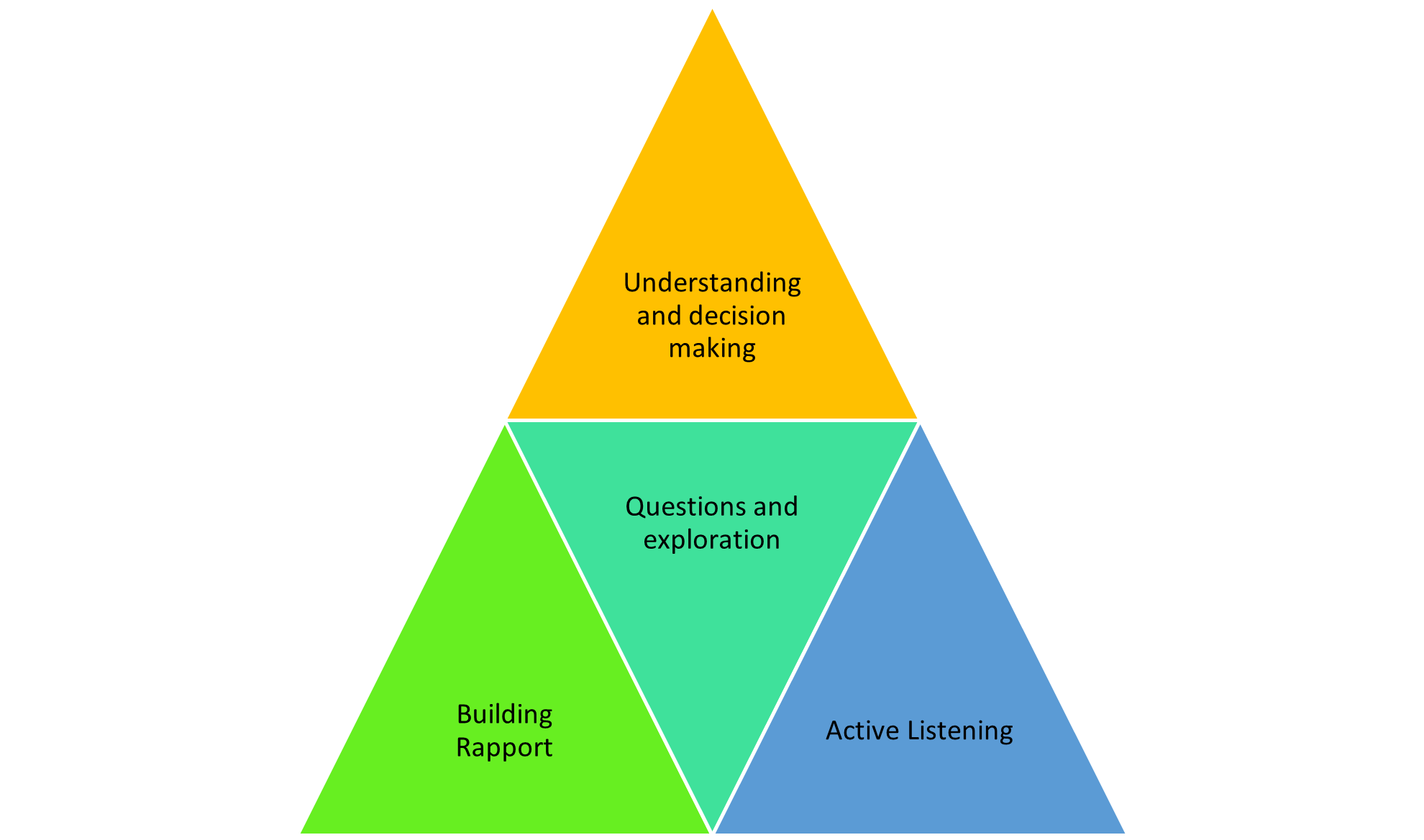Everything You Need To Get You Started on OpenLearn
12. Choosing The Right Course
12.1. Supporting Course Choice Decisions
In this section we will explore some easy ways to support your learners make course decisions
1. Ensure you understand context and needs of your learner(s)
Through building rapport, active listening and asking curious and purposeful questions, you will develop an understanding of the needs, barriers, support requirements and options you to enable your learners to be more in control of their choices.

Graham B & Ali L 1996Adapted from Counselling Approach to Career Guidance (1996) a pyramid showing key skills for effective choice focussed discussions - (1) Building Rapport (2) Active Listening (3) Questions and Exploration (4) Understanding and decision making
- Building Rapport - establishes trust which is important for any sort of helping or facilitation role - verbal nods, recognising concerns, mirroring language appropriately and reinforcing positives may all form part of rapport building
- Active Listening - by clarifying, summarising, asking clarifying questions and listening not only to what is said, but how it is said and what is left unsaid will support you to build as full a picture of your learners needs as possible
- Questions & Exploration - with appropriate understanding you can use your knowledge of the learner and the resources to ask questions and explore appropriate options - an example questionnaire can be found in section 7.2
- Understanding & Decision Making - ideally through effective conversation each individual learner will understand what they could do and feel empowered to make a plan - decide the next step along with you
2. Understand the Options
Once you have been able to establish needs and start to ask questions, possibly
using the suggested questionnaire in section 8.2, to effectively
facilitate an exploration of appropriate options whether with individuals or in
a group, it is really helpful to have a good working understanding of the
course options -
- Use the search function on OpenLearn / Openlearn Create to look at courses together by subject, length, whether there is a digital badge etc
- It's ok to share your knowledge or experience of courses - as long as this leads to questions for the learner to get them to consider whether course is right for them
- It is also ok to make suggestions - though empowering the individual to undertake their own research and evaluate courses within their own context is the ideal. A balance is needed as confidence may be low initially so you may start with a slightly more directive approach to begin with and over time your learner needs less input from you to make choices.
3. Make information as simple as possible
- Use plain English - you might need to 'translate' complex information into language that works for your learner
- Be impartial where you can- watch out for giving your opinion too much
- Avoid overload - monitor the individuals' reaction as you deliver information as much as possible - be succinct :)
